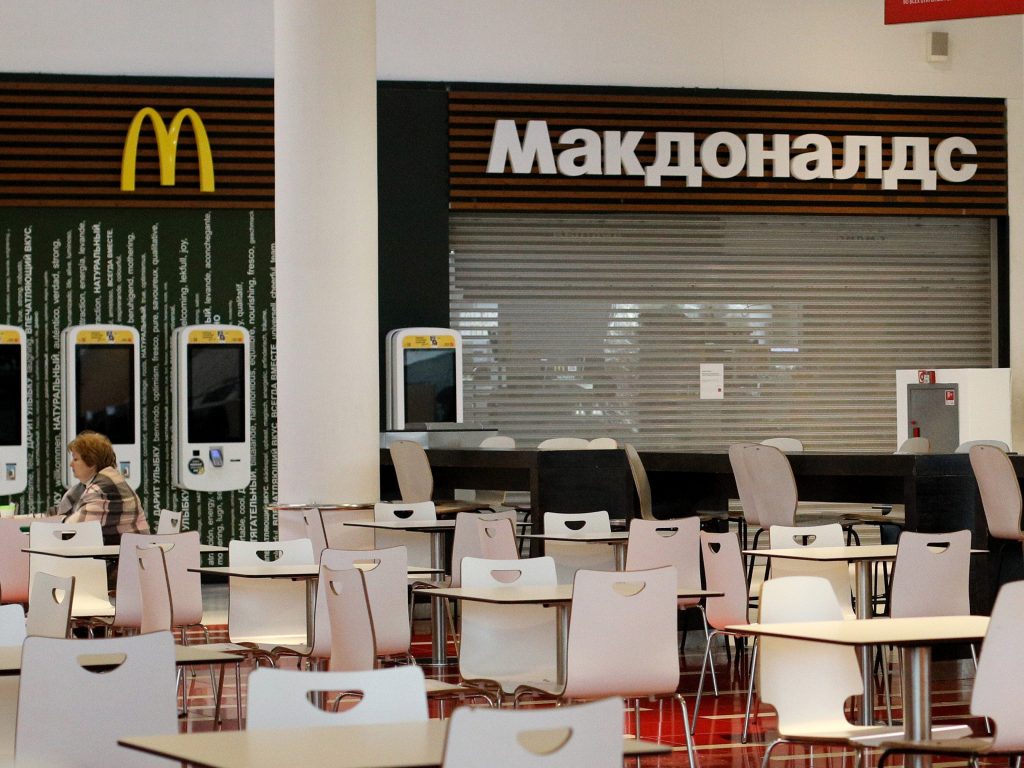- McDonald's has already lost $127 million related to the closure of its Russian and Ukrainian restaurants.
- It's continuing to pay wages, leases, and suppliers even though the stores aren't making money.
- Most of the losses are down to wasted inventory, the company said Thursday.
McDonald's has lost around $100 million in wasted inventory since it shut its restaurants in Russia and Ukraine amid the ongoing conflict, it said on Thursday.
The fast-food giant closed its 108 restaurants in Ukraine in late February, and most of its 850 outlets in Russia in mid-March.
McDonald's said in its first-quarter earnings it had incurred "$27 million of costs related to the continuation of employee salaries, lease, and supplier payments, as well as $100 million of costs for inventory in the company's supply chain that likely will be disposed of due to restaurants being temporarily closed."
McDonald's CFO Kevin Ozan told investors that it would cost the company between $50 and $55 million a month to keep its infrastructure going in Ukraine and Russia, echoing comments he'd previously made.
Ukraine and Russia represented around 2% of the company's system-wide sales in 2021, McDonald's has said. The $112 billion it reported in total system-wide sales suggests that McDonald's Ukrainian and Russian restaurants brought in just over $2 billion in revenues last year.
The continued costs and lost sales appear to have affected McDonald's bottom line. Though its total revenues rose, the company's expenses soared, and its first-quarter net profit fell 28% year-over-year.
McDonald's announced on March 8 that it was closing its Russian restaurants but would continue to pay its roughly 62,000 staff in Russia, as well as its workers in Ukraine.
"The conflict in Ukraine and the humanitarian crisis in Europe has caused unspeakable suffering to innocent people," Kempczinski said in a statement at the time. "As a system, we join the world in condemning aggression and violence and praying for peace."
Most of McDonald's Russian restaurants are company-operated but more than 100 are owned by franchisees, and some have refused to close. It's a similar story with other western fast-food chains, including Burger King, which said the operator of its 800 Russian restaurants "refused" to close them.
McDonald's opened its first outlet in Russia in Moscow in 1990. For Russian people, the opening of a McDonald's restaurant, synonymous with capitalism and American culture, was a tangible symbol of the impending collapse of the Soviet Union.
McDonald's has not yet said when its shuttered restaurants in Ukraine and Russia will reopen.
"It's clear that this crisis is far from over," McDonald's CEO Chris Kempczinski told investors Thursday. "With an ever-evolving situation, we are analyzing our options and expect to provide clear direction to investors and other stakeholders no later than the end of the second quarter."
